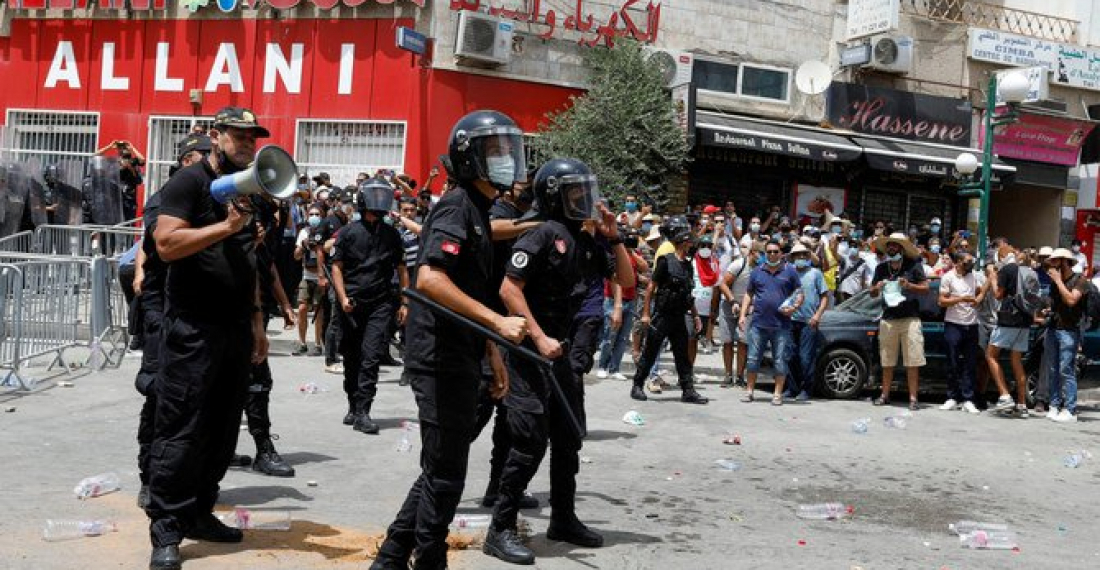Tunisia is in deep political crisis after the president dismissed the prime minister and suspended parliament in a move his opponents are describing as a coup.
President Kais Saied said he would assume executive authority with the assistance of a new prime minister, in the biggest challenge yet to the democratic system Tunisia introduced in a 2011 revolution.
Crowds of people quickly flooded the capital and other cities to support Saied, cheering and honking car horns in scenes that recalled the revolution, which triggered the Arab Spring protests that convulsed the Middle East.
As his supporters filled the central Habib Bourguiba Avenue, the epicentre of the 2011 revolution, Saied joined them in the street, state television pictures showed.
Saied, in his televised statement announcing his move, had warned against any violent response.
“I warn any who think of resorting to weapons... and whoever shoots a bullet, the armed forces will respond with bullets,” he said in a statement carried on television.
Hours after the statement, military vehicles surrounded the parliament building as people nearby cheered and sang the national anthem, two witnesses said. Local media reported that the army had also surrounded the state television building.
Tunisia's influential speaker of parliament, Rached Ghannouchi, leader of the Islamist Ennahda movement has condemned the president's move, and called on Tunisians to come into the streets to stop what he called a coup.
Ennahda, banned before the revolution, has been the most consistently successful party since 2011 and a member of successive coalition governments. Ghannouchi told the Reuter's news agency in a telelphone interview that the president's actions were “a coup against the revolution and constitution”.
The crisis in Tunisia is also a challenge to the European Union which has previously strongly backed Tunisia's transition to democracy, and its reform process.







